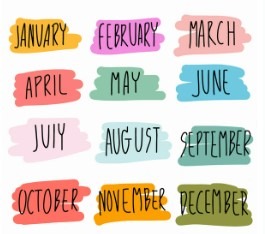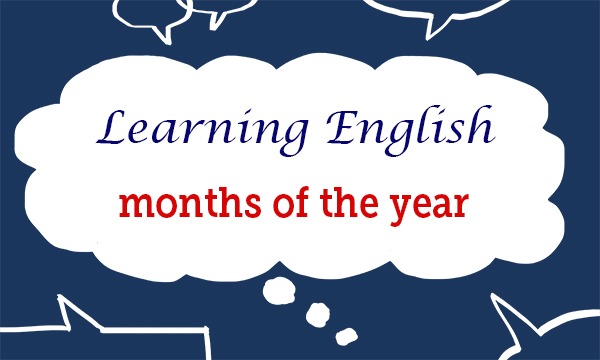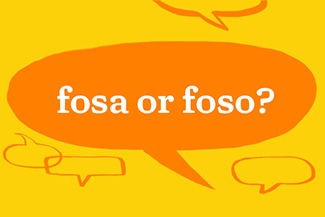
To say which month of the year something happens or happened in, use in …
My birthday is in August.
We’ll probably go away on holiday in May.
I visited some friends in Rome in September.
To make it clear which January or February, etc. you are talking about, use last … , this … or next …
Where did you go on holiday last June?
I’m hoping to go to Peru next July.
If you want to say which part of a month something happens in, use at the start of …, in the middle of … or at the end of …
She goes to university at the start of October.
The summer holidays start at the end of June.
They’re leaving in the middle of November.
To say what the date is, use the first/second, etc. of March/November, etc. or March/November, etc. the first/second, etc.
It’s the first of July today.
Tomorrow’s the tenth of January.
It’s March the fifth.
To say what date something is happening or happened on, use on … before the date.
He was born on the fourteenth of February, 1990.
He died on April the twenty-third, 1616.
Barbara and Tomek got married on May the fifteenth.
Come back for more blogs on using English in everyday situations: https://blog.collinsdictionary.com/language-learners/learning-english/
All opinions expressed on this blog are those of the individual writers, and do not necessarily reflect the opinions or policies of Collins, or its parent company, HarperCollins.



